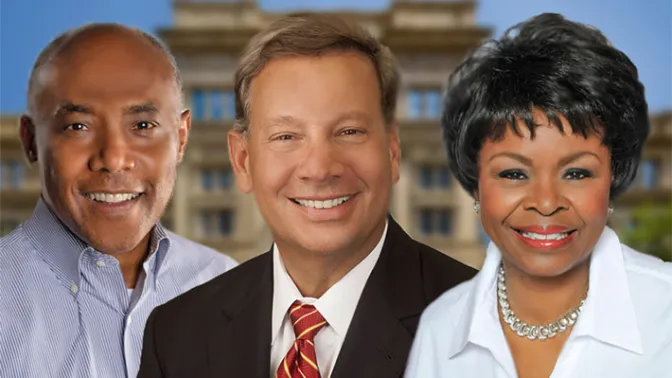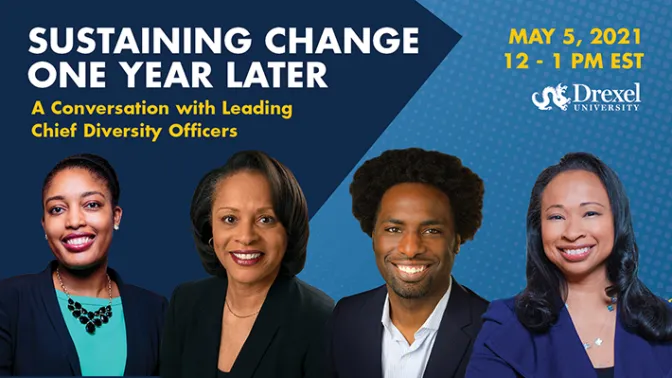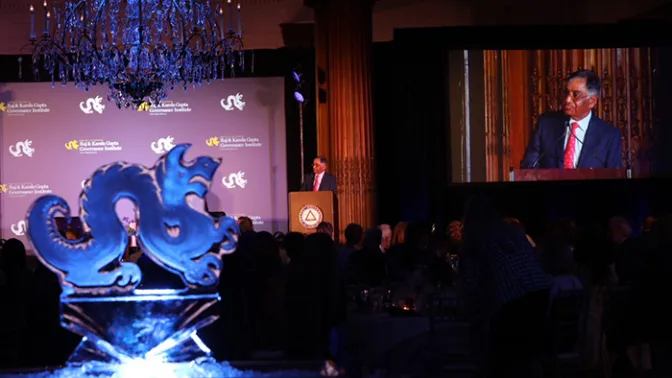Making a Contribution
In the first nine months of 2010 the city of Philadelphia had already recorded a $15 million increase over all of 2009 in contracts awarded to female, minority- and disabled-owned businesses in Philadelphia. That impressive growth of 8 percent during a difficult economy is attributable in large part to the leadership of Angela Dowd-Burton, ’74, MBA ’79, who has been executive director of the city’s Office of Economic Opportunity (OEO) for less than a year.
While this position is relatively new for her, Dowd-Burton is not new to the city of Philadelphia or to work in the public sector. She is actually on a return visit, having worked for the Mayor Wilson Goode administration in the mid-1980s. But between these positions and when her career first took off, Dowd-Burton worked in the business world, rising to senior level positions. With more than three decades of professional experience, she says that she is equally at home working on either side of the public-private divide, navigating her career toward roles where she feels she can make the greatest impact.
Currently, as the chief advocate for small businesses across the region, Dowd-Burton and her staff of 13 are responsible for increasing the number contracts awarded to city businesses owned by women, minorities and people with disabilities.
“These small businesses can really impact our economy,” Dowd-Burton says. “We want these small businesses to grow, so they can, in turn, hire more people.”
The mayor agrees.
“Increasing contracting opportunities for minority, women, or disabled-owned businesses is a tremendous accomplishment and real proof that the renewed vision of the Office of Economic Opportunity is working,” Nutter says. “While improving the city’s contracting is an important first step, the city must focus on helping small and minority businesses compete in the overall economy – that is where the real economic success of our communities lies.”
The OEO works to identify corporations, nonprofit organizations, trade unions, chambers of commerce, and lending institutions that will partner with Philadelphia in supporting these businesses. Additionally, Dowd-Burton has made internal changes to her department to improve its efficiency, including accepting certification decisions by other agencies, which allows the city office more time to promote these businesses throughout city government.
The results are stunning. As of Sept. 30, $184 million, or 19.2%, of all for-profit, city, quasi-government and federally funded contracts were awarded to these targeted businesses.
“We have engaged departmental OEO officers in the pursuit of a culture of inclusion on city contracts,” Dowd-Burton says. “We also are particularly interested in developing a productive mentor/ protégé program between our targeted business and the corporations, nonprofits and government agencies who could hire them. “Those sectors represent more than $300 billion in economic opportunity,” she says, adding:. “My greatest pleasure is connecting business owners with an opportunity to grow their business. I am here to make a contribution.”
The ability to “make a contribution” has been essential for the positions that Dowd-Burton has held over the years, which is part of the reason her career path has weaved from the private sector to public service and then back again.
As an undergraduate at Drexel she took a practical approach in deciding her course of study. “I wanted a job when I graduated, and thought accounting was a good industry.” Following graduation, she took a position at Mobil Oil as an auditor. Eventually she wanted to get involved in the company’s strategic planning initiatives but didn’t have the right background to contribute. The company offered her a leave of absence and Dowd-Burton quickly earned her MBA from LeBow.
Instead of returning to Mobil, she accepted a position at Sun Company where she held eight positions in five years with increasingly more responsibility in departments such as finance, marketing, supply chain, and strategic planning. Her career path changed when she received a phone call from then Mayor Wilson Goode’s office. She was approached by the director of finance to interview for the position of deputy director of finance and procurement commissioner. Although she had just received a promotion at Sun Oil, she committed to a two-year position but stayed for six, having won accolades for establishing the first savings plan for city employees and a deferred compensation plan. She also was responsible for garnering a half billion dollars in female and minority-owned business contracts.
In 1990, Dowd-Burton returned to the private sector with a position at Rohm and Haas, where she spent 18 years working in several high-level positions in government relations, communications, grassroots initiatives, and the corporate political action committee. She kept in touch with her contacts in city government, serving as the liaison to the mayor’s office, city operating departments and the City Council, and was also a member of the Greater Philadelphia Chamber of Commerce legislative committee. “I am fortunate that the companies I have worked for were engaged in good citizenship.”
Professionally, Dowd-Burton describes herself as a “utility infielder. I can be used in multiple roles,” she explains. “I go where I’m needed to turn situations around and increase profitability.” During her tenure she received two highly coveted Rohm and Haas Vice President’s Awards, as well as a 2007 Rohm and Haas Phoebe Waterman Haas Recognition, given to women within the company who exemplify leadership and serve as a role model in developing and mentoring employees.
Dowd-Burton is dedicated to community service away from the office, as well. She currently serves on LeBow College’s Advisory Board, Cabrini College Board of Trustees and is former co-chair of the Women’s Initiative of the United Way. She is also a founder and president of the Greater Philadelphia Women’s Leadership Forum, which connects corporate leadership networks across the region. A lifetime member of the National Black MBA Association, Dowd-Burton has served as a vice president on the national board of the organization, editor of the national newsletter and president of the Philadelphia chapter.
“I enjoy working in both the public and private sectors,” Dowd-Burton says. “I really like the influence of the public sector. This is the contribution I want to make to society at this time. This is why I’m here.”


